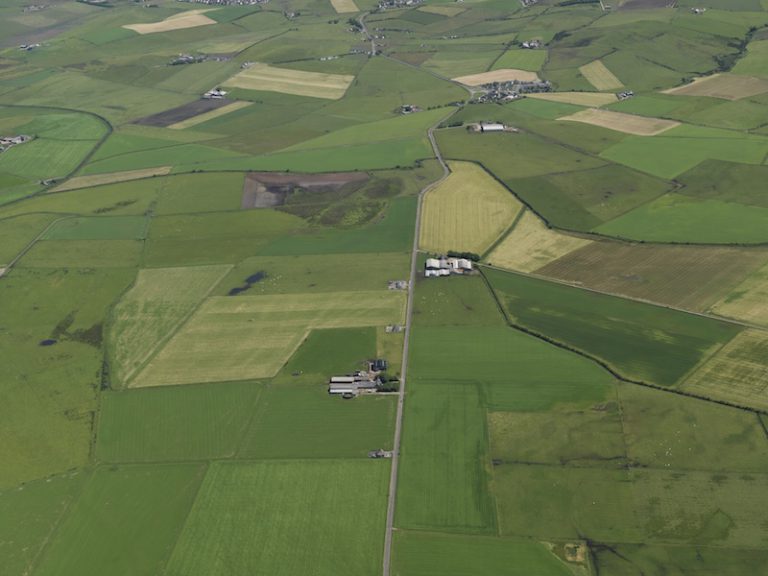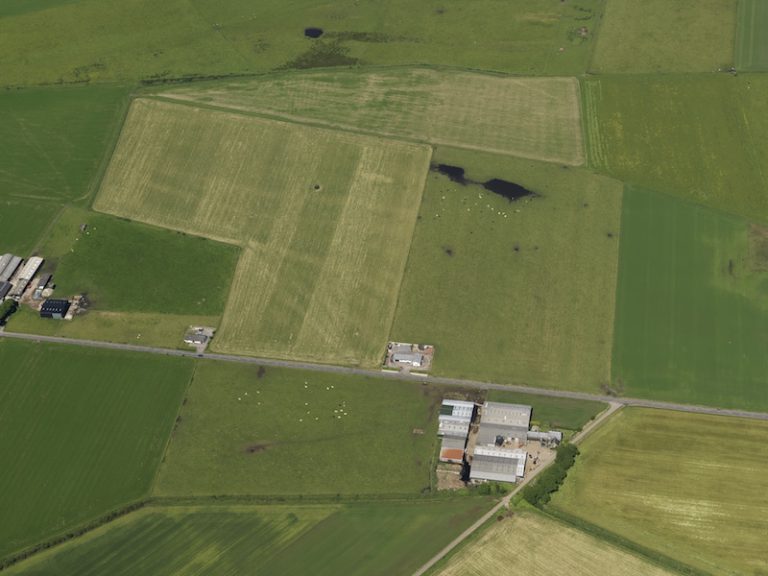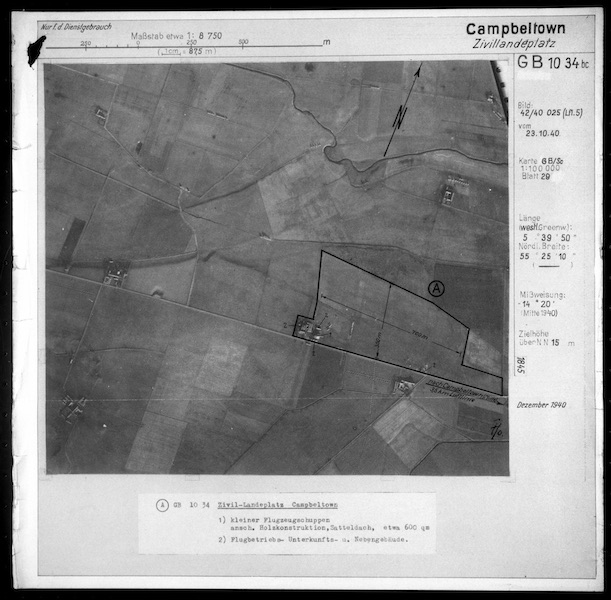Airfield search
Campbeltown (Machrihanish) (Strath)

| Also known as: | Campbeltown Aerodrome / HMS Landrail / HMS Landrail II / Machrihanish Aerodrome / RAF Machrihanish / RN Air Station, Campbeltown / RNAS Campbeltown / RNAS Machrihanish / Strath Aerodrome / Strath Field |
| County: | Argyll and Bute |
| Current Status: | Farmland |
| Date: | August 1918 - 1945 |
| Current Use: | Disused |
| Used By: | RAF / FAA / Civil |
| Landing Surface Type(s): | Unpaved |
| Aircraft Role(s): | Airliner / Maritime patrol / Naval aviation |
Campbeltown saw use in both World Wars and has something of a confusing history. It originally opened as Machrihanish, not to be confused with the nearby later and much more famous airfield of the same name. From the summer of 1918 the airfield became home to No 272 Squadron and its three Flights, Nos 531, 532 and 533 (Special Duty). Airco DH6s operated anti-submarine patrols over the approaches to the River Clyde until the squadron disbanded in March 1919. At this time there were no permanent buildings at the airfield, although temporary Bessonneau hangars provided shelter for the aircraft. An airship station was also being constructed at Machrihanish by the end of the First World War.
Between the wars the site was also known as either Strath or Strath Field. It was used by Midland and Scottish Air Ferries from 1933, then Northern and Scottish (later Scottish) Airways from 1934, flights being provided to and from Glasgow and Islay. The Royal Navy requisitioned Campbeltown in February 1940 and shared it with the airliners. Commissioned by the Navy as HMS Landrail in April 1941, the airfield saw use by a number of Fleet Air Arm units, flying aircraft such as the Fairey Swordfish during the earlier years of the Second World War, usually on short-term visits. Improvements to the facilities at Campbeltown were gradually made, with some hangars and dispersals being built by 1944.
Although the general area was seen as a very good location for an airfield, the site itself did not prove wholly ideal. The nearby airfield of Machrihanish, often still called Campbeltown, arose in a more suitable position and gradually took over. Machrihanish therefore became HMS Landrail in June 1941 and Campbeltown was renamed as its tender or satellite HMS Landrail II. Roadways duly linked both airfields so that aircraft could be moved between the two sites to allow extra space at the parent.
Campbeltown finally closed in the middle of 1945 and there are very few visible remains of the site today.
- Campbeltown Community Council – name only
- Campbeltown Heritage Centre
- Campbeltown Library
- The Laggan Community Council
The following alternative information/mass media sources have at least potentially significant connections with the airfield (as at 30/11/2018):
- Laggan Heritage
Main unit(s) present:
- No 272 Sqn
- No 531 (Special Duty) Flight
- No 532 (Special Duty) Flight
- No 533 (Special Duty) Flight
- No 766 Sqn
- No 772 Sqn
- No 804 Sqn
- No 810 Sqn
- No 812 Sqn
- No 815 Sqn
- No 816 Sqn
- No 818 Sqn
- No 820 Sqn
- No 825 Sqn
- No 826 Sqn
- No 828 Sqn
- No 829 Sqn
- No 837 Sqn
- Midland and Scottish Air Ferries
- Northern and Scottish Airways
- Scottish Airways
Oblique aerial view centred on the remains of the airfield, taken from the west, 23 June 2009. © Crown Copyright: Historic Environment Scotland, canmore.org.uk
Oblique aerial view centred on the remains of the airfield, taken from the south-south-east, 23 June 2009. © Crown Copyright: Historic Environment Scotland, canmore.org.uk
Scanned image of a Luftwaffe vertical air photograph of Campbeltown Airfield and the surrounding area, 23 October 1940. © Historic Environment Scotland (Luftwaffe: Aerial Reconnaissance (Scotland)), canmore.org.uk
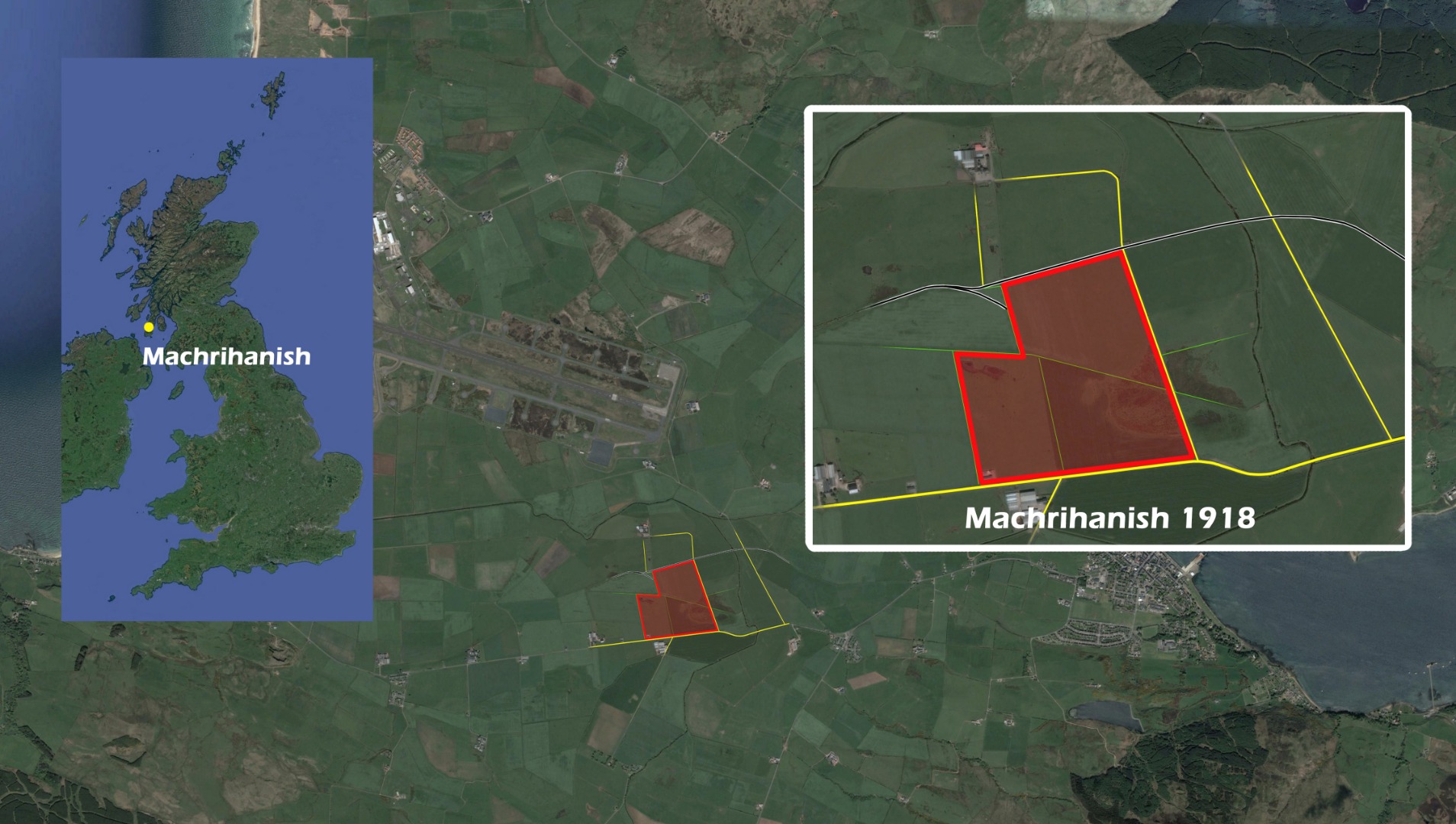
Plan of Campbeltown, 1918. Courtesy of Ed Andrews
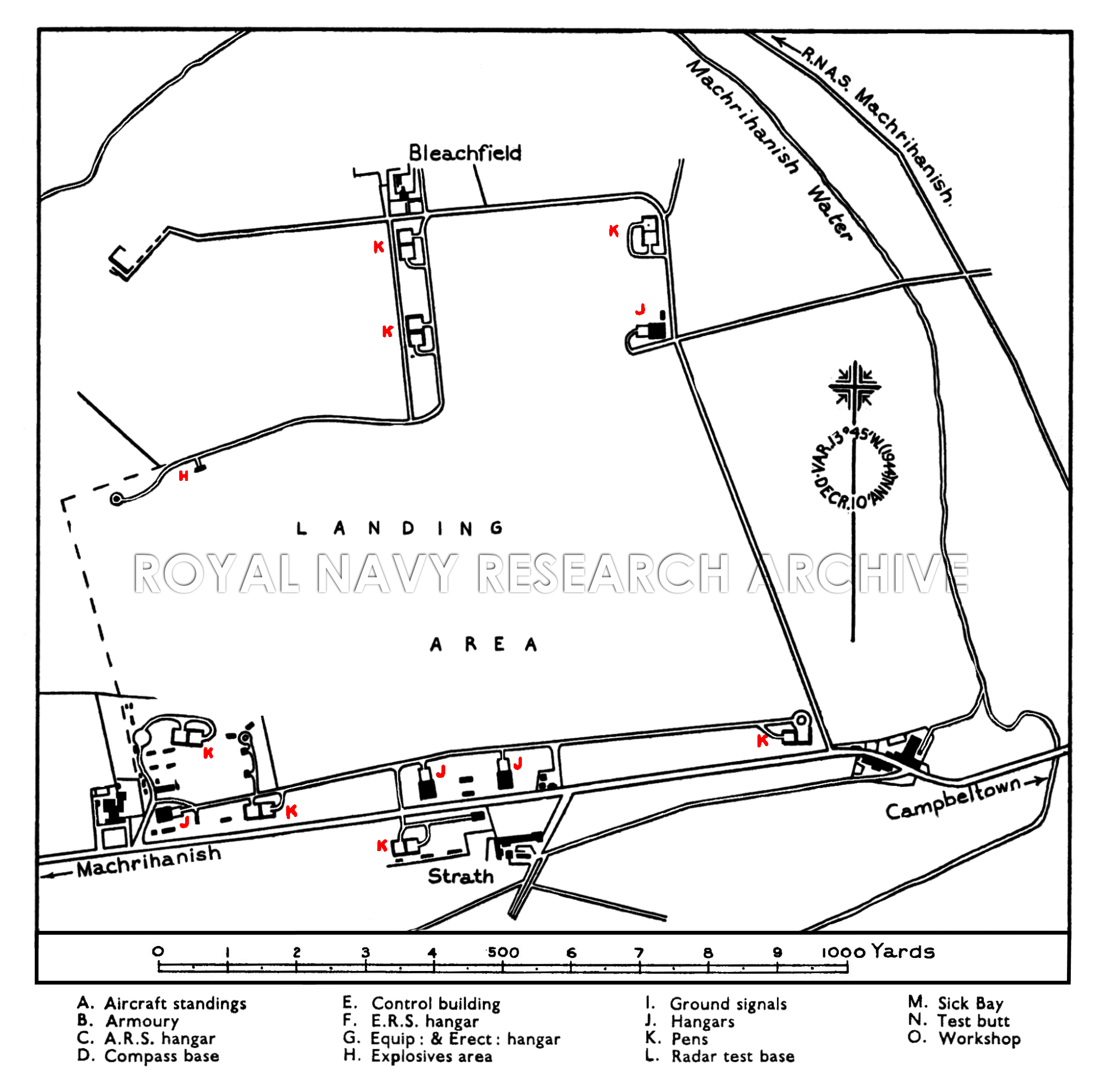
Plan of Campbeltown, c. 1940s. © Royal Navy Research Archive. Click here for more information.
| Parent(s)/HQ Airfield(s): | |
| Decoy Airfield(s): |

